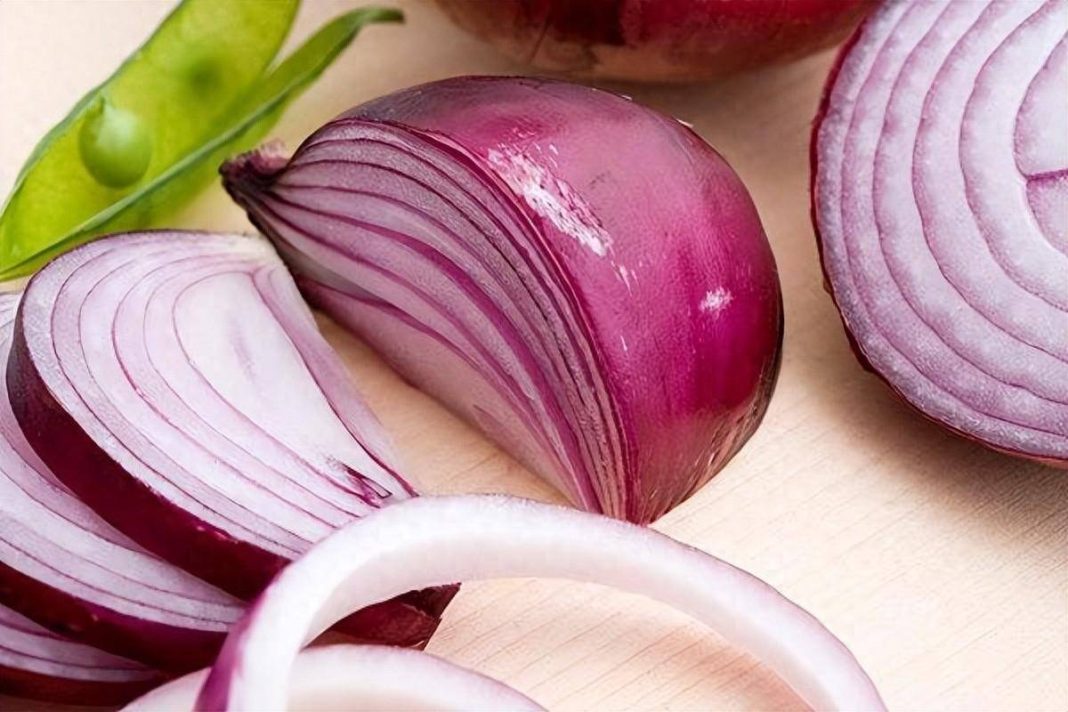Before reading this article, we sincerely invite you to click “Follow”, which will not only facilitate your discussions and sharing, but also provide you with more professional health knowledge to escort your health. Thank you for your support.
Uncle Qin, in his fifties, is an experienced old postman who usually rides his rusty bicycle without fail to deliver every day, rain or shine.
Many years ago, during a routine physical examination, the doctor told him that his blood sugar levels were worrisome. Uncle Qin thought it was just a prank played by time, but it turned out to be an unavoidable challenge in his life.
Recently, the village ladies have been discussing fervently, saying that onions can lower blood sugar and are the “ultimate weapon” against high blood sugar. Uncle Qin was initially skeptical about such “folk remedies”, but the heated discussions eventually made him ponder.
He thought, perhaps this could be the breakthrough he had been waiting for. So early one morning, he rode his bike and decided to go to the hospital in town to investigate. At the hospital, Uncle Qin met Dr. Liu, a senior physician specializing in diabetes treatment. Uncle Qin straightforwardly asked Dr. Liu whether onions could truly become his blood sugar savior.
“Uncle Qin, while onions indeed have their benefits, when it comes to the word ‘killer’, you must understand it correctly.” Dr. Liu said while opening a book, pointing to a detailed explanation, and starting his educational journey.
“See, the sulfur compounds in onions can indeed help lower blood sugar, but this requires the right amount of consumption and appropriate dietary habits to be effective. It’s not just about eating a few onions and expecting an immediate improvement in high blood sugar.”
Dr. Liu elaborated on the nutritional components of onions and their potential impact on the human body, each sentence revealing profound professional knowledge. Uncle Qin found it engrossing, occasionally interjecting, “Onions are truly remarkable!”
After the explanation, Uncle Qin’s doubts gradually dissipated, and he gained a more scientific understanding of the mysterious aura surrounding onions. He thanked Dr. Liu for his patient responses and planned to adjust his dietary habits, not relying solely on the miraculous effects of singular ingredients but rather managing his health more comprehensively.
As he left the hospital, Uncle Qin silently decided that upon his return to the village, he would effectively convey his newfound knowledge to prevent the village ladies from regarding onions as a miraculous cure-all, thus safeguarding everyone’s health.
In the process of treating high blood sugar, apart from conventional medication and physical exercise, dietary control is undoubtedly crucial. Over the years, people have been exploring various food items’ impact on blood sugar levels, attempting to find foods that can effectively help manage blood sugar. The following foods not only have a favorable effect on blood sugar control but also are highly regarded nutritionally.
Oats are a well-known food item in blood sugar management — their effect should not be overlooked. Oats are rich in soluble fiber, which forms a viscous gel-like substance during digestion, slowing down food absorption in the intestines and helping reduce the speed of post-meal blood sugar elevation.
Beta-glucans in oats also significantly affect blood lipid control, lowering bad cholesterol and increasing good cholesterol, which is particularly important for diabetes patients. However, it is essential to remember not to overconsume oats; a small bowl per day is sufficient.
Next, let’s talk about grapefruit. Grapefruits are rich in vitamin C and dietary fiber. Research has found that natural compounds in grapefruits can increase insulin sensitivity, thereby aiding in lowering blood sugar levels.
However, grapefruits interact with certain medications, such as blood pressure and specific cholesterol-lowering drugs. Patients who consume grapefruits while taking these medications need to consult their doctors. Regarding blood sugar reduction, we cannot overlook legumes. They are not only tasty but also notably beneficial for blood sugar control.
Due to legumes’ low glycemic index (GI), they slowly release sugars in our stomach, preventing a sudden blood sugar spike. Additionally, legumes contain high-quality proteins that help stabilize blood sugar, making them especially suitable for diabetic individuals. Nevertheless, despite the numerous benefits of legumes, excessive consumption may lead to discomfort, causing bloating or indigestion. Therefore, consuming legumes in moderation and adjusting based on one’s personal health conditions is imperative.
Proper arrangement and healthy eating make legumes an excellent companion in our diet. Avocado, with its fats, can enhance insulin sensitivity and lower blood sugar levels. Avocado is also a high-calorie food, so it is advisable to consume it in moderation.
Many other food items are beneficial for blood sugar. Cinnamon, bitter melon, spinach, and more are good choices. It’s not just about what you eat but also about how much and how you eat — these factors are key to managing blood sugar. It’s recommended to develop a personalized dietary plan under the guidance of a professional nutritionist to ensure both health and enjoyment of food.
(The above names are pseudonyms.)
#Headline First Contest#
What are your thoughts on onions? Let’s discuss in the comments section!


